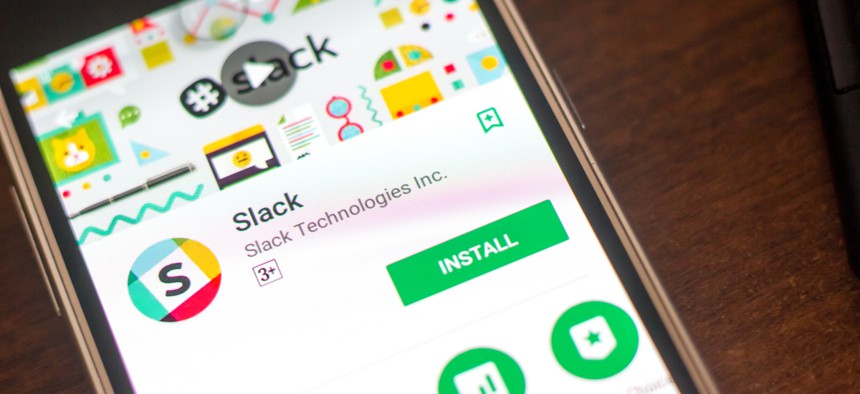Slack Has Made Its Biggest Acquisition to Date

Sharaf Maksumov/Shutterstock.com
Slack is finally invading email.
There’s a common understanding that there are two types of people in this world: Slack people and email people. In reality, most modern offices use both (if not Slack, one of its messaging competitors; here at Quartz we happen to use Slack). But there’s a cognitive cost to switching back-and-forth between multiple workplace communication apps.
So far, Slack has prided itself on its ability to play well with others through custom integrations with workplace tools like Salesforce and Google Drive. But Slack’s ultimate goal has always been to be a singular destination for getting work done—like a team’s virtual office that others can enter and leave throughout the day.
A new acquisition gets the company one step closer to achieving this goal, by bringing calendar and email functionality into Slack rather than having users constantly open and close tabs, whether physically or mentally, throughout the workday.
Slack has acquired Astro, a productivity startup that uses artificial intelligence to surface important information from your emails and calendar. The Palo Alto-based company built Astrobot, a popular plug-in that lets you check your email and calendar information directly from Slack.
Astro is a 28-person company, the largest Slack has acquired to date. Besides the size of the acquisition, the move is notable because it represents an expansion of Slack’s workplace dominance. Last month, Slack acquired the IP of Stride and Hipchat, two former competitors, from the enterprise software giant Atlassian. With only 70,000 paying teams, which equates to roughly 3 million individual users, Slack has become a $7 billion company.
Slack did not release the terms of the Astro deal, but given that it raised half a billion dollars last month, it certainly has plenty to spend.
“Whereas last year we just needed to make it so that more people could use the Slack that already exists, now we’re starting to take steps to expand what Slack is,” says April Underwood, Slack’s chief product officer.
Astro’s algorithms use artificial intelligence to learn what you care about and to separate the essential stuff from all the inbox clutter. Astrobot users loved the app’s Slack integration because it allowed them to continue working without missing out on important emails and calendar items.
Though Slack will sunset Astro’s services on Oct. 1o, it will integrate Astro’s technology and employees. Slack has taken a similar “acquire to integrate” approach with its other acquisitions to date.





